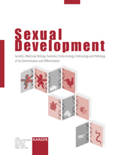
Sexual Development
Scope & Guideline
Advancing Knowledge in Sexual Development Biology
Introduction
Aims and Scopes
- Differences of Sex Development (DSD) Research:
The journal emphasizes research on various forms of DSD, including genetic, hormonal, and anatomical variations. It covers the clinical presentations, management strategies, and outcomes for individuals with these conditions. - Psychosocial Aspects of DSD:
There is a focus on the psychosocial implications for patients and families dealing with DSD. This includes studies on gender identity, mental health outcomes, and the experiences of those affected by DSD. - Genetic and Molecular Studies:
The journal publishes studies that explore the genetic basis of DSD, including gene mutations, chromosomal abnormalities, and the role of epigenetics in sexual development. - Multidisciplinary Approaches in Clinical Care:
Research on the effectiveness of multidisciplinary care teams in managing DSD cases is highlighted, with an emphasis on collaborative approaches to improve patient outcomes. - Educational Initiatives and Resources:
The journal supports the development of educational materials and training for healthcare providers and families to enhance understanding and management of DSD.
Trending and Emerging
- Patient-Centered Care and Shared Decision-Making:
There is an increasing emphasis on patient-centered approaches in DSD management, including shared decision-making frameworks that involve patients and families in care plans. - Longitudinal and Outcome Studies:
Emerging research is focusing on long-term outcomes for individuals with DSD, including quality of life and psychosocial adjustment, which are crucial for understanding the lifelong impact of these conditions. - Digital Health and Telemedicine:
The integration of digital health tools and telemedicine in the management of DSD is gaining attention, reflecting a broader trend towards utilizing technology to enhance patient care and accessibility. - Interdisciplinary Collaboration:
There is a growing trend towards interdisciplinary collaboration among clinicians, geneticists, psychologists, and educators to address the multifaceted challenges faced by individuals with DSD.
Declining or Waning
- Environmental Influences on Sexual Development:
Research specifically focusing on environmental factors affecting sexual development, such as endocrine disruptors, has become less frequent. This could indicate a shift towards more clinically oriented studies or genetic investigations. - Historical Perspectives in DSD:
There seems to be a waning interest in historical analyses of DSD management practices. Fewer papers now address the evolution of treatment approaches over time, suggesting a preference for contemporary or forward-thinking research. - Animal Models in DSD Research:
Although animal studies have been significant in understanding DSD, there is a noticeable decrease in publications utilizing these models as the journal increasingly prioritizes human clinical studies and findings.
Similar Journals

Molecular Genetics Microbiology and Virology
Advancing the Frontiers of Molecular ScienceMolecular Genetics Microbiology and Virology is an esteemed academic journal published by PLEIADES PUBLISHING INC, specializing in the complex interplay of genetics, microbiology, and virology. Established in 2007, this journal serves as a crucial platform for researchers and professionals committed to advancing our understanding of infectious diseases and molecular biology. Despite its current categorization in Q4 across several fields, the journal aims to evolve and foster significant discourse within the scientific community. While not an open access journal, it provides essential insights and high-quality research articles that contribute to the body of knowledge in molecular genetics and related disciplines. Located in the vibrant research landscape of New York, USA, the journal also encourages new submissions that address cutting-edge research topics and emerging trends in infectious diseases, thereby appealing to both emerging scholars and seasoned experts alike.

ANATOMICAL SCIENCE INTERNATIONAL
Unveiling Innovations in Anatomical ScienceANATOMICAL SCIENCE INTERNATIONAL is a distinguished peer-reviewed journal published by SPRINGER, focusing on the field of anatomy and its applications within the broader spectrum of medical science. With an ISSN of 1447-6959 and an E-ISSN of 1447-073X, this journal provides a robust platform for the dissemination of innovative research and findings from around the globe, featuring studies that span from basic anatomy to advanced clinical applications. As of 2023, it holds a respectable Q2 rank in Anatomy and a Q3 rank in the miscellaneous category of Medicine, reflecting its growing influence and contribution to the field, with Scopus rankings placing it in the 59th percentile of Medicine - Anatomy journals. Although ANATOMICAL SCIENCE INTERNATIONAL is not an Open Access journal, it remains indispensable for researchers, professionals, and students who seek to stay at the forefront of anatomical science research. The journal's ongoing commitment to excellence is evident through its continuous publication, spanning from 2002 and projected through 2024, making it a vital resource for those aiming to advance their knowledge and practice in anatomy.
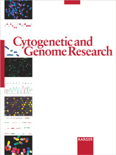
CYTOGENETIC AND GENOME RESEARCH
Connecting researchers to the latest breakthroughs in genetics.CYTOGENETIC AND GENOME RESEARCH is a pivotal journal dedicated to the exploration of cytogenetics, genomics, and their applications within clinical genetics and molecular biology. Published by KARGER in Switzerland, this journal aims to foster comprehensive discussions and disseminate impactful research from diverse fields related to genetics. It operates under an open access model, ensuring that researchers, professionals, and students can easily access and contribute to the latest findings. With coverage spanning from 1962 to 2024, CYTOGENETIC AND GENOME RESEARCH continues to serve as a vital resource, despite its current categorization in the Q4 quartile across Genetics and Molecular Biology. It provides an avenue for advancing the understanding of genomic mechanisms and their implications for human health. The journal encourages submissions that delve into cutting-edge methodologies, data interpretation, and theoretical frameworks, thereby playing a crucial role in the advancement of genetic research and its clinical applications.
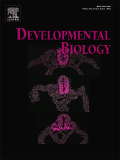
DEVELOPMENTAL BIOLOGY
Unraveling the Mysteries of Life's Building BlocksDEVELOPMENTAL BIOLOGY, published by Academic Press Inc., Elsevier Science, stands as a pivotal journal in the fields of cell biology, developmental biology, and molecular biology since its inception in 1959. Renowned for its rigorous peer-review process, this journal serves as a platform for publishing cutting-edge research, reviews, and insights that drive forward our understanding of developmental processes at the cellular and molecular levels. With an impressive track record, it is classified in the Q2 quartile across multiple categories, reflecting its significant impact and relevance in academia and research communities. Although the journal does not provide Open Access options, it remains accessible via numerous academic databases, ensuring a wide reach for researchers, professionals, and students alike. With a commitment to advancing the field, DEVELOPMENTAL BIOLOGY continues to be essential reading for those looking to stay at the forefront of developmental research and its applications.
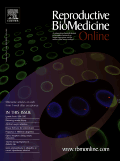
REPRODUCTIVE BIOMEDICINE ONLINE
Shaping the future of reproductive biomedicine with impactful research.Reproductive Biomedicine Online, published by Elsevier, is a leading peer-reviewed journal that has established itself as a pivotal resource in the fields of Developmental Biology, Obstetrics and Gynecology, and Reproductive Medicine. With an impressive Impact Factor and a Q1 ranking in its respective disciplines as of 2023, this journal provides a platform for innovative research and comprehensive reviews that contribute to advancements in reproductive healthcare. The journal boasts rigorous Scopus rankings, placing it within the top tiers of its categories, which underscores its significance in shaping contemporary biomedical inquiry. Although not open access, it remains widely accessible through institutional subscriptions, making its wealth of knowledge available to researchers, clinicians, and students alike. Since its inception in 2000, Reproductive Biomedicine Online has been committed to fostering a deeper understanding of reproductive processes and biomedicine, ensuring that its content remains relevant and impactful in addressing challenges in reproductive health, thereby championing exceptional scientific discourse.

Hormones and Behavior
Unraveling the Secrets of Endocrine Influence on ActionsHormones and Behavior, published by Academic Press Inc, Elsevier Science, serves as a premier forum dedicated to the multifaceted relationship between hormonal mechanisms and behavioral outcomes. With roots tracing back to 1969, this journal has cultivated a diverse scope that crosses the domains of Behavioral Neuroscience, Endocrinology, and Endocrine and Autonomic Systems, solidifying its position in the scientific community with an impressive Q2 ranking in these categories as of 2023. As a vital resource for researchers, professionals, and students, the journal emphasizes innovative research that unveils the intricate interplay between endocrine signals and behavioral patterns, thereby promoting a deeper understanding of physiological and psychological processes. Although not an open-access publication, Hormones and Behavior continues to garner respect in its field, with Scopus rankings highlighting its relevance and cutting-edge contributions to neuroscience and endocrinology, underpinning its mission to advance knowledge and inspire future explorations in these interconnected disciplines.
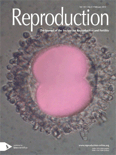
REPRODUCTION
Connecting researchers to shape the future of reproduction.REPRODUCTION, published by BIOSCIENTIFICA LTD, stands at the forefront of research in the fields of reproductive and developmental biology. With a focus on advancing our understanding of reproductive health and mechanisms, the journal has garnered an impressive reputation, consistently ranking in the first quartile for key categories including Embryology, Endocrinology, Obstetrics and Gynecology, and Reproductive Medicine in 2023. Notably, it holds an esteemed position in the Scopus rankings, with high percentiles that reflect its significant impact in the scientific community. The journal is committed to open access, promoting the broad dissemination of high-quality research to facilitate innovative discoveries and interdisciplinary collaboration. Situated in the United Kingdom, REPRODUCTION serves as a vital resource for researchers, professionals, and students eager to contribute to the evolving landscape of reproductive sciences and related fields.
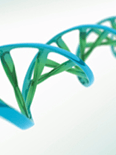
Annual Review of Genetics
Synthesizing Knowledge to Propel Genetic Research Forward.The Annual Review of Genetics is a premier academic journal dedicated to advancing the field of genetics through critical, comprehensive reviews that synthesize current research and highlight future directions. Published by Annual Reviews, this esteemed journal boasts an impressive impact factor, ranking in the Q1 category for Genetics, and holds a distinguished position as 14th out of 347 journals in the Scopus ranking for Genetics, placing it in the 96th percentile among its peers. With its convergence of knowledge from 1970 to 2023, the journal serves as an essential resource for researchers, professionals, and students alike, facilitating a deeper understanding of genetic principles and their applications. Although the journal is not open access, it remains a vital platform for disseminating high-quality, peer-reviewed content that shapes the conversation in genetics, making it a must-read for those seeking to stay at the forefront of this dynamic field.
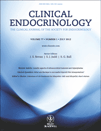
CLINICAL ENDOCRINOLOGY
Elevating clinical practice through cutting-edge research.CLINICAL ENDOCRINOLOGY, published by Wiley, is a premier journal in the field of endocrinology, providing a vital platform for the dissemination of cutting-edge research and advancements in the diagnosis and treatment of endocrine disorders. Since its inception in 1972, this prestigious journal has maintained its commitment to excellence with its scope encompassing diverse areas within endocrinology, diabetes, and metabolism, evidenced by its impressive ranking in the Q2 quartile for these categories as of 2023. With a growing impact factor, it serves as a leading reference for researchers and healthcare professionals dedicated to improving patient outcomes. Although the journal does not currently offer open access, it remains accessible through institutional subscriptions, ensuring that vital research reaches an expansive audience. Its robust focus on clinical applications makes CLINICAL ENDOCRINOLOGY an essential resource for anyone involved in the evolving field of endocrinology, thereby underscoring its importance in shaping future research and practice in healthcare.

Biology of Sex Differences
Illuminating the Intricacies of Sex-Based BiologyBiology of Sex Differences is an esteemed open access journal published by BMC that has been at the forefront of research since its inception in 2010. Focused on the intricate biological aspects of sex differences, this journal serves as a vital resource for researchers and professionals within the fields of Endocrinology and Gender Studies. With a remarkable impact factor and consistently high rankings—achieving Q1 status for both Endocrinology and Gender Studies in 2023—this journal is widely recognized for its contribution to advancing knowledge in these critical areas. The journal is based in the United Kingdom, reflecting its commitment to fostering global dialogue among scientists and scholars. With its open access model, Biology of Sex Differences ensures that cutting-edge research is accessible to a diverse audience, promoting collaboration and innovation. By encompassing a broad scope of topics related to the biological underpinnings of sex differences, this journal is essential for anyone looking to understand the complex interplay between biology and gender.